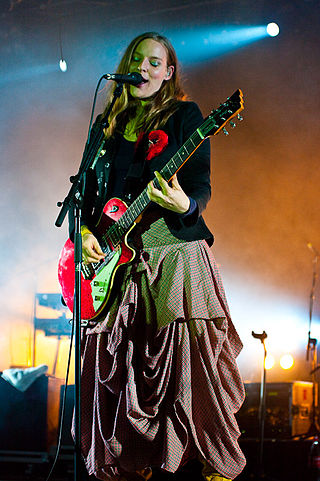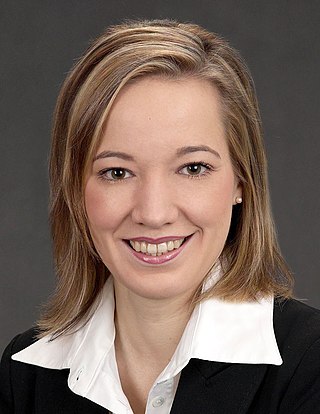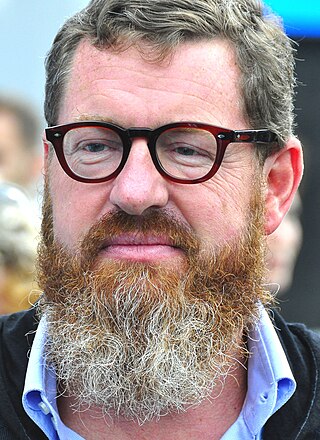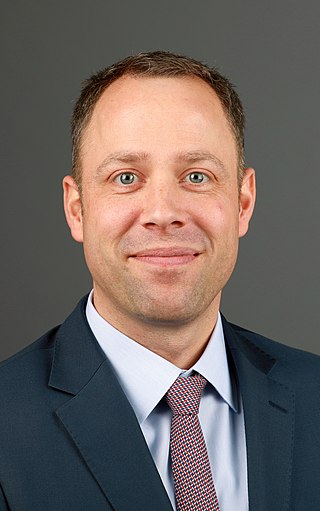Related Research Articles
Page 3, or Page Three, was a British newspaper convention of publishing a large image of a topless female glamour model on the third page of mainstream red top tabloids. The Sun introduced the feature in November 1970, which boosted its readership and prompted competing tabloids—including The Daily Mirror, TheSunday People, and TheDaily Star—to begin featuring topless models on their own third pages. Well-known Page 3 models included Linda Lusardi, Samantha Fox, Debee Ashby, Maria Whittaker, Katie Price, Keeley Hazell, and Jakki Degg.

Bild or Bild-Zeitung is a German tabloid newspaper published by Axel Springer SE. The paper is published from Monday to Saturday; on Sundays, its sister paper Bild am Sonntag is published instead, which has a different style and its own editors. Bild is tabloid in style but broadsheet in size. It is the best-selling European newspaper and has the sixteenth-largest circulation worldwide. Bild has been described as "notorious for its mix of gossip, inflammatory language, and sensationalism" and as having a huge influence on German politicians. Its nearest English-language stylistic and journalistic equivalent is often considered to be the British national newspaper The Sun, the second-highest-selling European tabloid newspaper.

Sibel Kekilli is a German actress. She gained public attention after starring in the 2004 film Head-On. She won two Lolas, the most prestigious German film award, for her performances in Head-On and When We Leave (2010). Beginning in 2011, she became more widely known for her role as Shae in the HBO series Game of Thrones.

Judith Holfelder-Roy, known by her stage name Judith Holofernes, is a German singer, guitarist, songwriter and author.

Kristina Schröder is a German politician who served as the Federal Minister of Family Affairs, Senior Citizens, Women and Youth in the government of Chancellor Angela Merkel from 2009 to 2013. She served as a Member of Parliament between 2002 and 2017.

Kai Diekmann is a German businessman and former journalist. From 1998 until 2000 he was editor of Welt am Sonntag. From January 2001 to December 2015 he was chief editor of Bild. He is also a member of the executive board of the Turkish daily Hürriyet.

B.Z. is a German tabloid newspaper published in Berlin by Ullstein-Verlag, a subsidiary of Axel Springer AG. As of 2010, it has a circulation of around 200,000.

RasenBallsport Leipzig e.V., commonly known as RB Leipzig, is a German professional football club based in Leipzig, Saxony. The club was founded in 2009 by the initiative of the company Red Bull GmbH, which purchased the playing rights of fifth-tier side SSV Markranstädt with the intent of advancing the new club to the top-flight Bundesliga within eight years. The men's professional football club is run by the spin-off organization RasenBallsport Leipzig GmbH. RB Leipzig plays its home matches at the Red Bull Arena. The club nickname is Die Roten Bullen.
No More Page 3 was a campaign that ran in the United Kingdom from 2012 to 2015, aimed at convincing the owners and editors of The Sun to cease publishing images of topless glamour models on Page 3, which it had done since 1970. Started by Lucy-Anne Holmes in August 2012, the campaign represented Page 3 as an outdated, sexist tradition that demeaned girls and women. The campaign collected over 240,000 signatures on an online petition and gained support from over 140 MPs, a number of trade unions, over 30 universities, and many charities and advocacy groups.
Causa Wulff refers to several political scandals that ultimately led to the resignation of Christian Wulff as President of the Federal Republic of Germany. In the beginning, there were questions concerning the purchase of a house for which Wulff had accepted a loan from an entrepreneur family with whom he was friends.

In the early hours of 15 November 2014, a German student by the name of Tuğçe Albayrak was struck and fatally injured outside a McDonald's restaurant in Offenbach am Main after intervening on behalf of two young women who were being harassed by a man. They reportedly got into a verbal fight and she is said to have insulted him before the fatal blow got thrown, which a witness later testified in court. The video footage lacks sound so the details could never get solved. Albayrak was born to Turkish-German parents; she lived in Gelnhausen and was studying to become a German and ethics teacher at the University of Giessen.

#Aufschrei ("outcry") is a German hashtag which went viral on the social media platform Twitter in 2013 with the goal of raising awareness about experiences of sexism in Germany. The Tweets began to appear in response to the publication of an article in which journalist Laura Himmelreich describes an invasive encounter with politician Rainer Brüderle of Germany's Free Democratic Party (FDP); within the German public, these tweets triggered a national debate on sexism, particularly experiences of everyday sexism.

The Felix Burda Foundation is a German charitable foundation based in Offenburg. It was founded in 2001 by Christa Maar and Hubert Burda to improve the early detection of colorectal cancer. Among its most well-known initiatives is the "Darmkrebsmonat" or "Colon Cancer Month" in March.
Association football club RB Leipzig-affiliated teams include a reserve team, women's team, and junior and academy teams.
Anna-Katharina Meßmer is a German activist and sociologist. Her work focuses on digitization, politics, social media, hate in the net, biopolitics, feminism and social politics. She became known for her contribution to the #about action and the open letter to the Federal President Joachim Gauck.
The Donaulied is a German song (Lied) that, in most versions, describes the rape of a young woman sleeping on the bank of the Danube. It is frequently sung at festivities as a drinking song.

Mario Czaja is a German politician of the Christian Democratic Union (CDU) who has been serving as a member of the German Bundestag since the 2021 elections.

Julian Reichelt is a German journalist. From February 2017 to October 2021, he was chairman of the editors-in-chief and digital editor-in-chief of Bild, Germany's largest and highest-circulation tabloid.
Katja Kessler is a German journalist and author.
References
- ↑ Kalle, Janina (7 November 2014)."Engagiert gegen "Bild"-Miezen", NDR.
- 1 2 Eul, Alexandra (16 November 2014). "Kampagne: Schafft das Bild-Girl ab!", EMMA .
- 1 2 3 4 Hildebrand, Kathleen (30 January 2015). "Reduziert auf Brüste". Süddeutsche Zeitung .
- ↑ Brichta, Mascha K. (2014). "Love it or Loathe it": Audience Responses to Tabloids in the UK and Germany. Bielefeld: Transcript Verlag. p. 81. ISBN 9783839418857.
- 1 2 Harcup, Tony (2014). A Dictionary of Journalism, Oxford University Press, p. 36.
- 1 2 Becker, Sophia (2014). "Sexism in The Media & Its Violent Implications", Zod.
- 1 2 Greenslade, Roy (23 January 2015). "No More Page 3 inspires campaign against topless pictures in Germany". The Guardian . Retrieved 29 January 2015.
- ↑ Burgard, Benjamin (11 November 2014). "#BILDsexism: Studentin (25) fordert von Kai Diekmann Abschaffung des Bild-Girls", Südkurier .
- ↑ Lunz, Kristina (11 June 2015). "Warum es wichtig ist, dass wir uns über Diskriminierung aufregen", The Huffington Post .
- ↑ Lunz, Kristina (6 June 2015). "Der tägliche Herrenwitz. Mit Macht kommt Verantwortung – die "Bild"-Zeitung nutzt ihren medialen Einfluss trotzdem viel zu oft für sexistische Berichterstattung". The European . Retrieved 19 August 2015.
- 1 2 Barfield, Tom (22 January 2015). "Meet the women fighting German tabloid sexism". The Local (German edition) . Retrieved 29 January 2015.
- ↑ Helwerth, Ulrike (13 January 2015). "'Schafft das BILD-Girl ab!'", Deutscher Frauenrat (German Women's Council).
- ↑ "Videobotschaft von Selmin Çalışkan", Stop Bild Sexism.
- 1 2 "Testimonials" Archived 24 September 2015 at the Wayback Machine , Stop Bild Sexism.
- ↑ "Petition gegen Sexismus in der BILD". andersundgleich. 16 January 2015. Retrieved 19 August 2015.